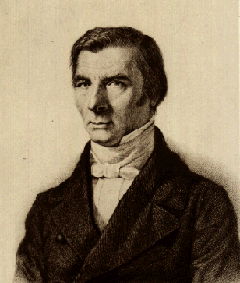


In 1841 he published his first essay “Le fisc et la vigne” and, apprised of the free-trade movement that Cobden was then directing in England, joined forces with him. After the Revolution of 1830 he was appointed justice of the peace at Mugron and, being deeply interested in political economy, gave himself up to it with great earnestness and constituted himself the champion of commercial liberty. Returning to Mugron in 1825, he inherited an extensive estate through the death of his grandfather, and subsequently devoted himself to farming. Sever and Soreze, entered the business founded by his grandfather and then conducted by his uncle at Bayonne. Left an orphan at the age of nine, he was brought up by his paternal grandfather and, after pursuing his studies at St.

The widely different effects of these two economic systems upon the fortunes of his family undoubtedly gave rise to Bastiat’s free-trade opinions. He was the son of Pierre Bastiat, whose father had founded at Bayonne a business house that prospered in consequence of the franchise granted this port by the Treaty of Versailles, but ceased to flourish under the prohibitory regime of the Empire. at Mugron, a small city in the Department of Landes, Jd. Bastiat, CLAUDE-FREDERIC, a French economist, b.


 0 kommentar(er)
0 kommentar(er)
